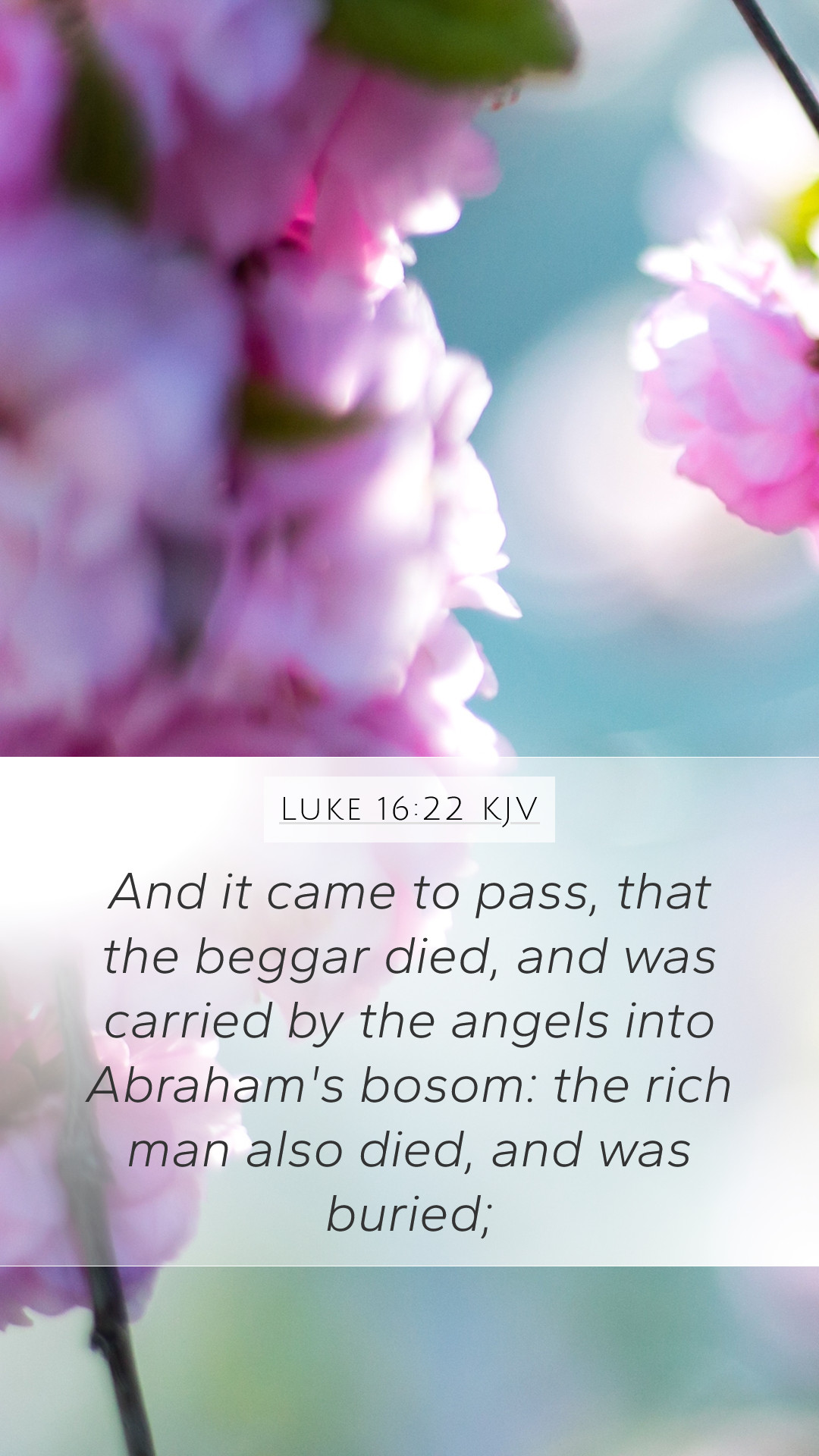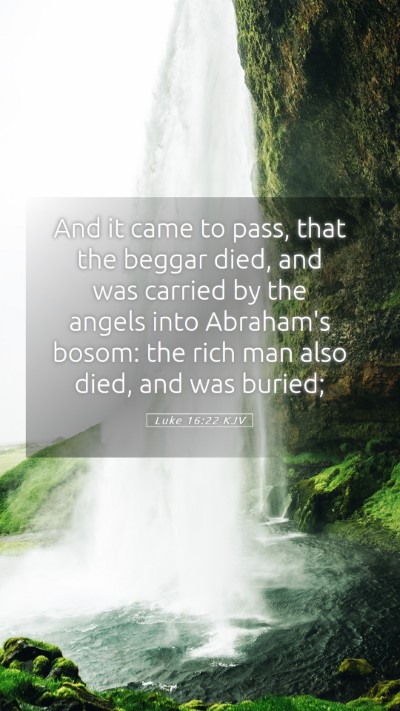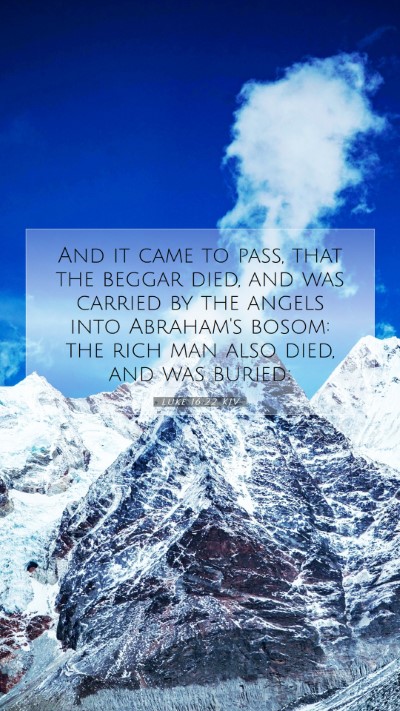Understanding Luke 16:22 - Bible Verse Meaning and Commentary
Luke 16:22 (KJV): "And it came to pass, that the beggar died, and was carried by the angels into Abraham's bosom: the rich man also died, and was buried."
This verse presents a profound illustration of the contrast between two lives and their ultimate destinies, encapsulated within the parable of the rich man and Lazarus. Below we will explore the meanings derived from esteemed commentaries like Matthew Henry, Albert Barnes, and Adam Clarke, providing rich insights for anyone seeking understanding of Scripture.
Summary and Interpretation
Luke 16:22 conveys the conclusion of Lazarus' earthly struggles and the rich man's demise, highlighting the dramatic afterlife outcome for both. Below, we explore the key insights:
-
State of the Beggar:
Matthew Henry emphasizes that Lazarus, despite his suffering during life, was granted honor and comfort in death. The phrase "carried by the angels" symbolizes divine favor and companionship, indicating a place of rest and comfort represented by "Abraham's bosom," a biblical depiction of paradise or reward for the righteous.
-
Significance of Abraham's Bosom:
Albert Barnes notes that this reference signifies a place of happiness and reward for those who believed in God’s promises, illustrating the metaphorical link between Abraham (the father of faith) and those who exhibit faith and righteousness.
-
Contrast with the Rich Man:
Adam Clarke points out the fate of the rich man, who experiences a stark contrast post-death. His burial signifies societal respect, but the absence of spiritual value or favor from God leads to eternal separation and torment. This highlights the theme of the parable that earthly riches do not equate to heavenly favor.
-
Angelic Involvement:
Other commentaries emphasize that the depiction of angels taking Lazarus to his reward signifies God's providence and care over the faithful, contrasting sharply with the rich man's fate, which underscores impending judgment.
-
Broader Implications:
This verse serves as a reminder that life’s circumstances do not determine one's eternal destiny; faith, character, and the divine judgment thereof hold greater significance.
Reflections on the Passage
This verse invites readers to reflect on the transient nature of life and the eternal consequences of our actions and beliefs. It urges individuals to consider:
-
The value of humility and faith:
True richness does not come from material wealth, but from a relationship with God, as exemplified in Lazarus's life.
-
The reality of judgment:
The parable serves as a warning about eternal consequences, encouraging moral living and empathy towards those in need.
-
The comfort of God's presence:
For believers, this passage reassures of God's care in both life and death, comforting those who suffer under earthly burdens.
Bible Cross References
This verse connects with various other scriptural passages that elaborate on themes of divine judgment, the afterlife, and the values of humility and compassion:
- Luke 16:19-31 - The full parable of the rich man and Lazarus.
- Matthew 5:3-12 - Teachings on the blessedness of the poor and persecuted.
- Revelation 21:4 - The promise of no more suffering for the saved.
- Philippians 3:20 - A reminder of where our true citizenship lies.
- James 2:5 - The recognition of the poor in faith.
Conclusion
The insights from Luke 16:22 elucidate the depth of biblical truth concerning life, death, and eternal existence. For Bible study groups, online Bible study resources, and individual study plans, delving into this passage provides a compelling understanding of human existence in the light of Scripture. By interpreting this verse and its surrounding context, we gain tools for applying its messages in practical and meaningful ways to our daily lives.


